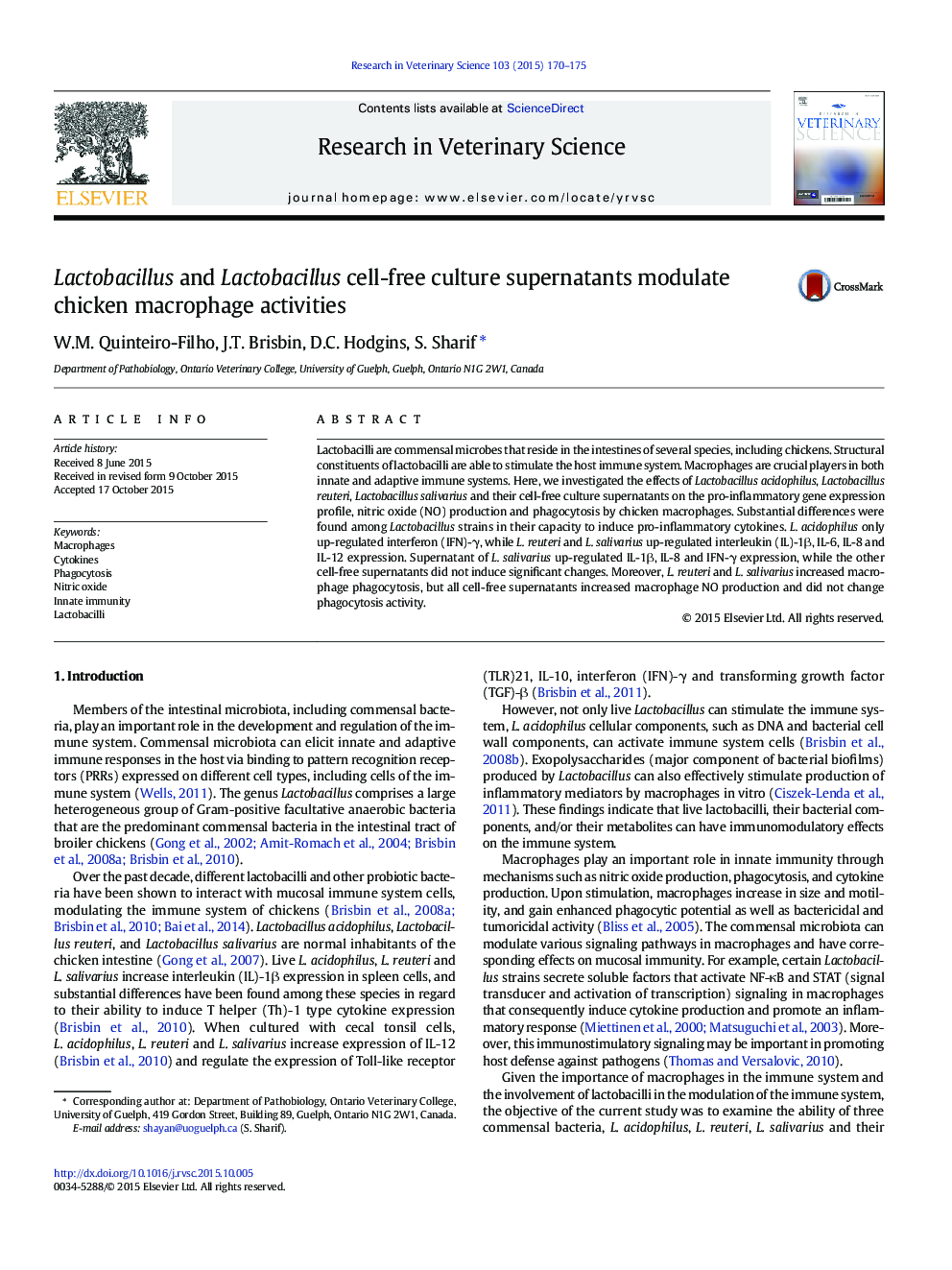| Article ID | Journal | Published Year | Pages | File Type |
|---|---|---|---|---|
| 2454696 | Research in Veterinary Science | 2015 | 6 Pages |
•The effects of three lactobacilli and their supernatant on macrophage were assessed.•Cell-free supernatant of all lactobacilli up-regulated NO production in macrophages.•Two of three lactobacilli up-regulated several inflammatory cytokines in macrophages.•Supernatant of L. salivarius up-regulated inflammatory cytokines in macrophages.
Lactobacilli are commensal microbes that reside in the intestines of several species, including chickens. Structural constituents of lactobacilli are able to stimulate the host immune system. Macrophages are crucial players in both innate and adaptive immune systems. Here, we investigated the effects of Lactobacillus acidophilus, Lactobacillus reuteri, Lactobacillus salivarius and their cell-free culture supernatants on the pro-inflammatory gene expression profile, nitric oxide (NO) production and phagocytosis by chicken macrophages. Substantial differences were found among Lactobacillus strains in their capacity to induce pro-inflammatory cytokines. L. acidophilus only up-regulated interferon (IFN)-γ, while L. reuteri and L. salivarius up-regulated interleukin (IL)-1β, IL-6, IL-8 and IL-12 expression. Supernatant of L. salivarius up-regulated IL-1β, IL-8 and IFN-γ expression, while the other cell-free supernatants did not induce significant changes. Moreover, L. reuteri and L. salivarius increased macrophage phagocytosis, but all cell-free supernatants increased macrophage NO production and did not change phagocytosis activity.
